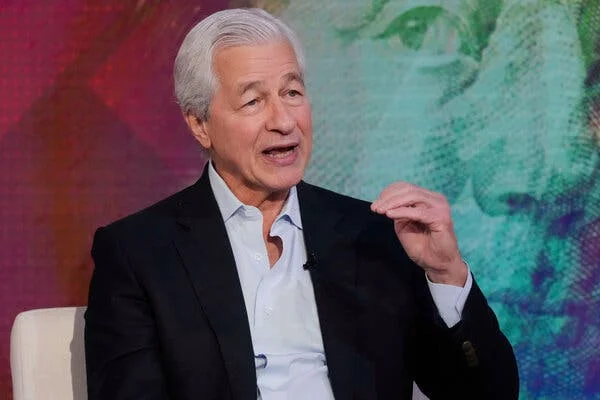
Wall Street’s Wild Ride: How Trump’s Tariff Flip Shocked Markets And Sent Executives Scrambling
In a whirlwind week on Wall Street, President Donald Trump’s dramatic U-turn on tariffs sparked historic market swings, razor-sharp warnings from banking titans, and a palpable sense of unease on the floors of America’s biggest financial institutions. As investors, executives, and analysts struggled to interpret the White House’s unpredictable economic maneuvers, a central question emerged: just how fragile is the trust between Washington and Wall Street?

The drama began with an almost overnight reversal of a sweeping tariff initiative—a centerpiece of Trump’s economic agenda designed, ostensibly, to protect American interests in a turbulent global trade environment. But as tariffs on China soared to a once-unthinkable 145%, and new 10% duties blanketed much of the rest of the world, even “positive” reports—like lower-than-expected inflation—couldn’t soothe frayed investor nerves. The Dow plunged 1,000 points, the S&P 500 sank 3.5%, and the Nasdaq lost 4.3% in a single day, with oil giving up previous gains amidst fears of a global recession.
Wall Street’s response was scathing and swift. "The market is effectively putting its pencils down and saying, ‘I’m not buying into this,’” remarked Daniel Alpert of Westwood Capital. The skepticism was echoed by Jamie Dimon, the influential CEO of JPMorgan Chase, who flagged “considerable turbulence” ahead and warned that the administration’s shifting trade policies could undermine America’s financial footing. Dimon’s words resonated far beyond his own boardroom, with banking giants like Wells Fargo bracing for volatility by building financial cushions against potential credit losses.

Yet, amid the turmoil, the influence of Wall Street on presidential policy remained evident. Minutes after intense market selloffs, Trump relented, rolling back the most severe tariffs on most countries except China. The stock market’s fevered rally was a testament to this about-face—one of the sharpest since the 2008 crisis—but the relief proved short-lived. As analyst R. Scott Siefers of Piper Sandler noted, the episode forced the market “to rewrite completely its sense for what a second Trump presidency means for the economy.”
The economic see-saw underscores what some call the “chaos discount”—a term used by analysts like Brian Foran of Truist bank to describe the hesitation and lower valuations imposed by policy unpredictability. Investors typically view Treasurys as safe havens in turmoil, but last week’s sell-off ironically pushed borrowing costs up, threatening to drag the Federal Reserve into emergency intervention. “The bond market was anticipating a real crisis,” said veteran analyst Ed Yardeni, while Allianz’s Mohamed El-Erian warned that repeated brushes with disaster raise the risk that the U.S. could go over the edge.

With universal tariffs still in place and tense negotiations ongoing, market participants are girded for more volatility. In the words of Mike Mayo, a Wells Fargo analyst, the capital markets act “to a degree, [as] a governor on the actions that are taken.” But for now, uncertainty reigns. Investors and business leaders will closely watch upcoming earnings calls and economic releases to gauge whether this period marks a turning point—or just another lurch along a bumpy road.
In the end, the past week has illuminated both the power and the peril of executive policy shocks for financial markets. Has trust been permanently damaged, or will better predictability return? Readers, what do you think—can Washington and Wall Street rebuild confidence, or is this just the new normal? Share your thoughts and join the conversation below.